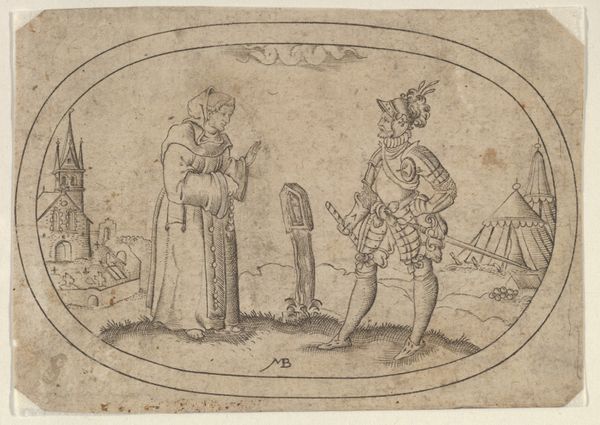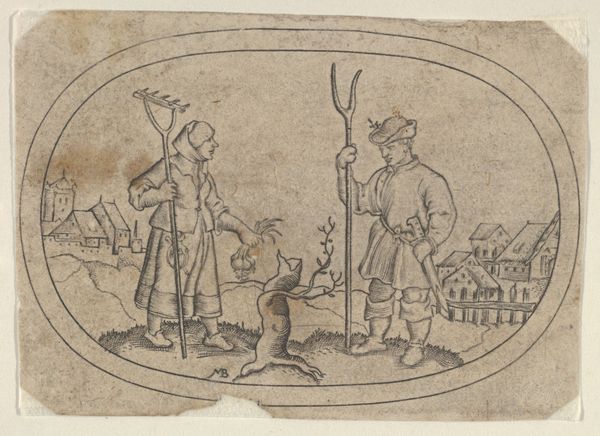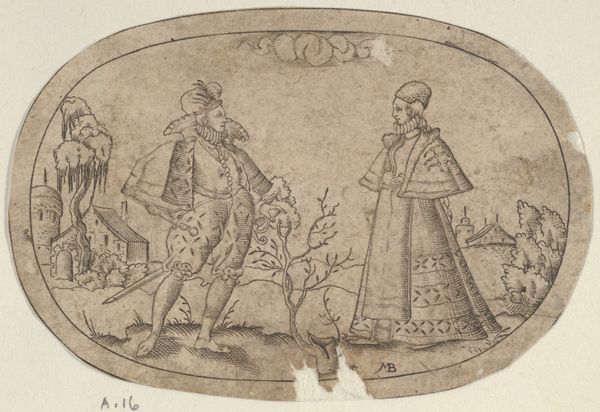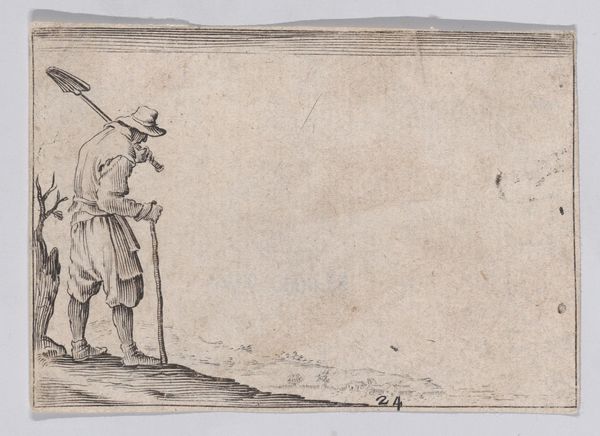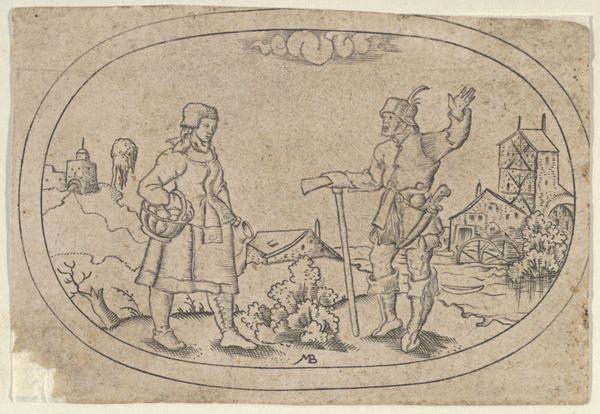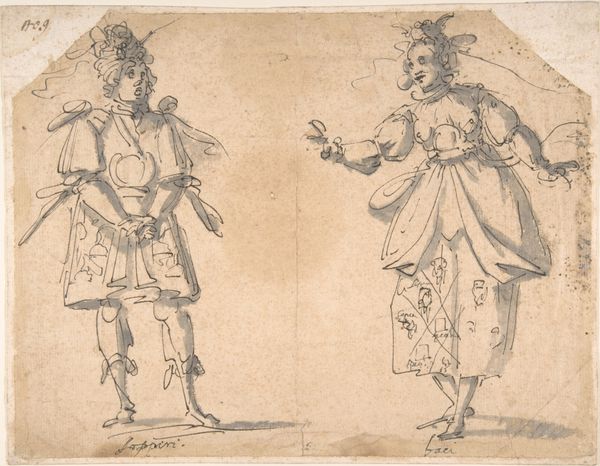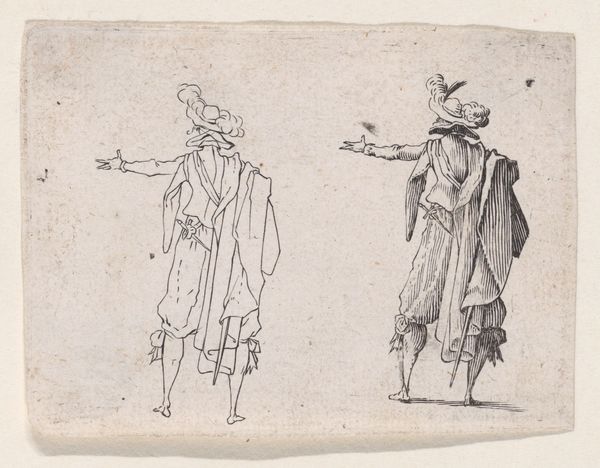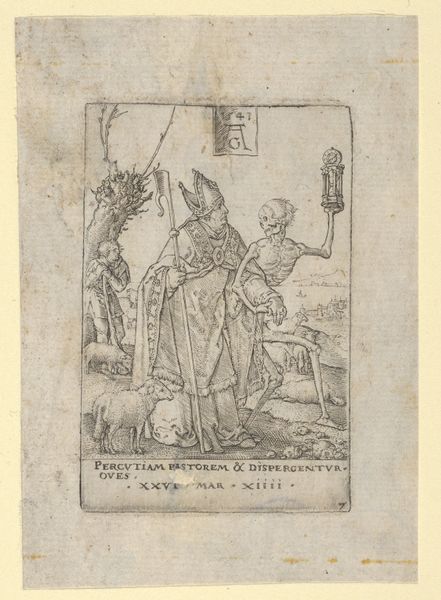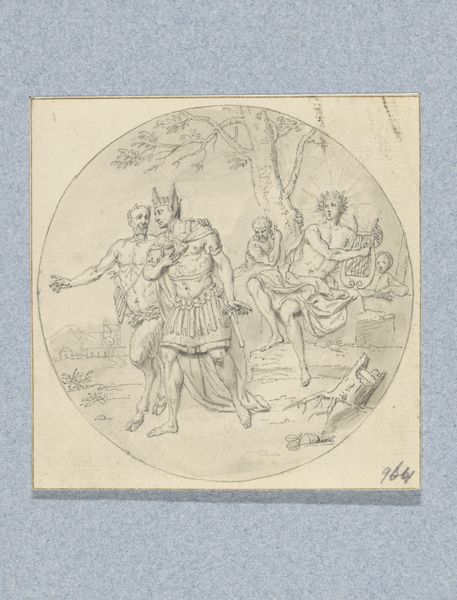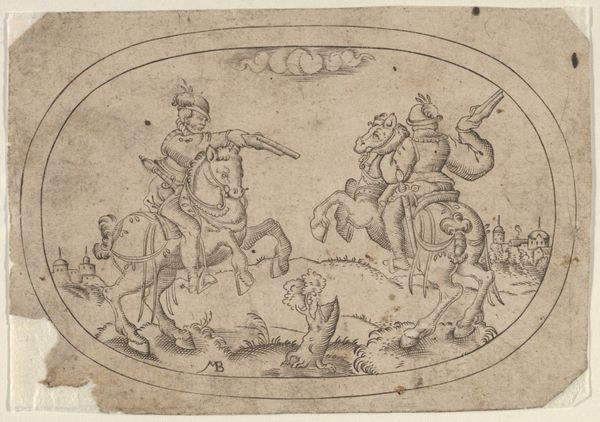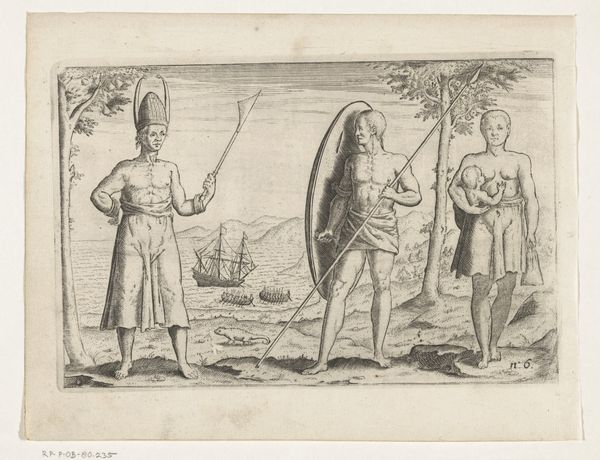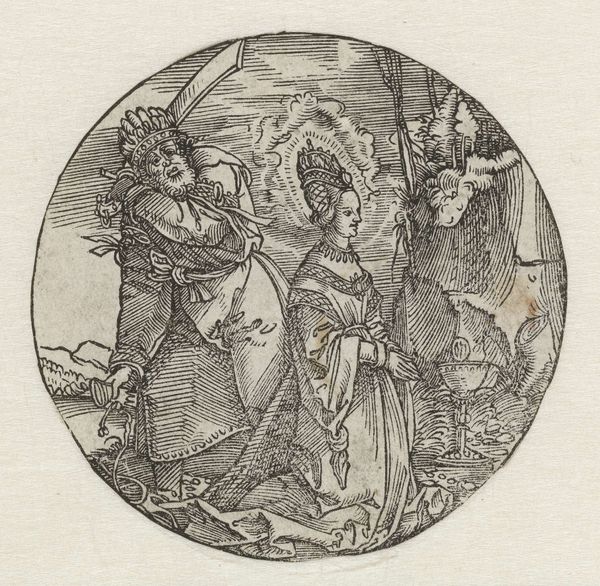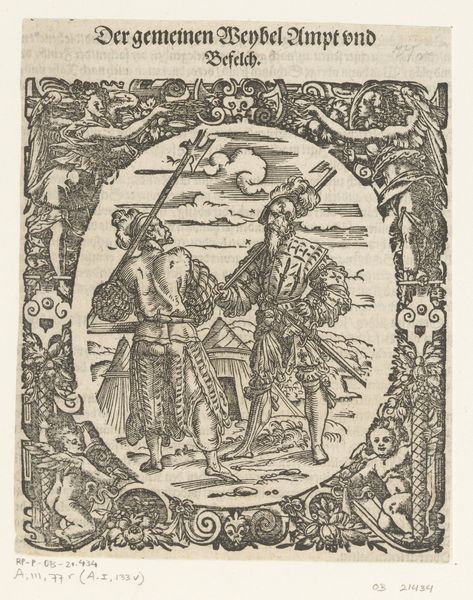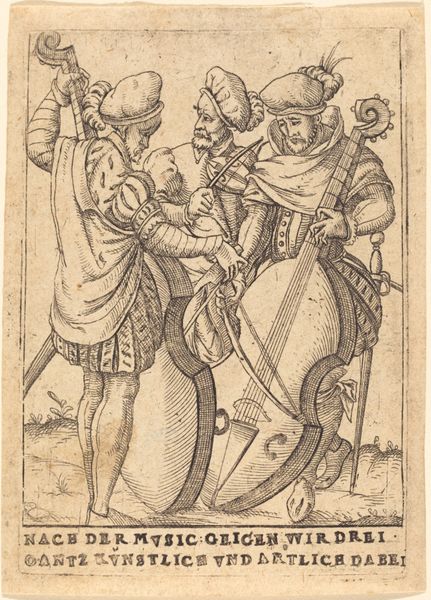
A Turkish Man and a Polish Man, from Das Bossenbüchlein 1577 - 1587
0:00
0:00
drawing, print, etching, engraving
#
portrait
#
drawing
#
medieval
#
narrative-art
# print
#
etching
#
figuration
#
11_renaissance
#
orientalism
#
line
#
history-painting
#
engraving
Dimensions: Sheet: 2 1/4 × 3 3/8 in. (5.7 × 8.5 cm)
Copyright: Public Domain
Mathias Beitler created this print, "A Turkish Man and a Polish Man", around 1600 using etching, a printmaking process that allows for finely detailed images. The artist would have covered a metal plate with a waxy ground, and then scratched an image through it with a needle. Acid would then be applied, biting away at the exposed metal to create recessed lines. The plate would then be inked and pressed onto paper, transferring the image. The fineness of the lines in this print speaks to the artist’s skill with the etching needle. Look closely, and you can see how the subtle gradations of tone are achieved by varying the density of lines. This print wasn’t conceived as a work of ‘fine art,’ but rather as a page in a book of model images for other artists to draw on. In the context of early modern Europe, images like this would have served as a form of cultural exchange, allowing for the dissemination of ideas across regions and artistic disciplines.
Comments
No comments
Be the first to comment and join the conversation on the ultimate creative platform.
